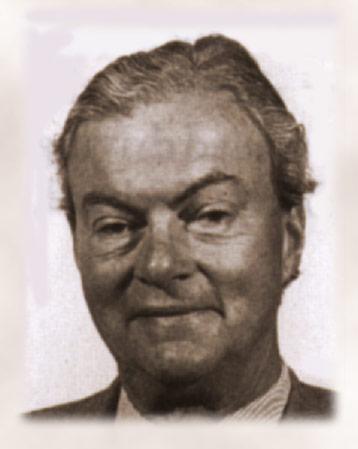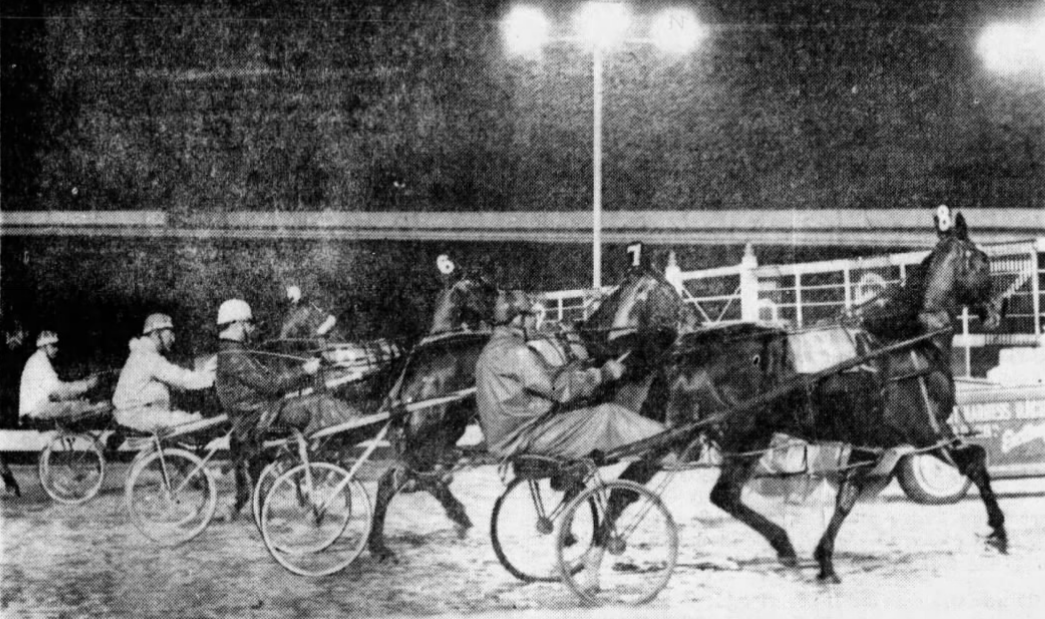I’m not too much of a religious buff, but I do know that there is an old proverb from a bible verse—I Timothy 6:10—that says ”money is the root of all evil.”
That proverb means that the excessive love of money or prioritizing wealth above other values can lead to “negative” behaviors like greed, corruption and unethical actions.
How true that has come to be…
Money, itself, isn’t “inherently” evil, but the obsession with getting it at all costs can be a source of evil and cause damage to others.
Money and wealth, themselves, are not evil, but the thirst for those traits beyond reasonable needs can lead to destruction and cause irreparable harm to others in numbers that are harmful and, in many causes, not reparable.
Being in a vocation like our sport of harness racing is like living in a glass house throwing stones because success for our industry is now based on a shrinking number of overall participants (on both sides of the fence) with the “stones” being thrown at our glass house by card games, bingo, the lottery, baccarat, roulette, the expansion of casinos—online ones, too—sports betting and all other competitive gambling games.
First, though, a “bit” of history.
Gambling, of course, is not new—it’s been around for, literally, 5,000 years, yes, before written history.
Heck, six-sided dice date back to 3,000 B.C. and, in ancient China, there is evidence of keno games with some forms of gambling used for “civic” purposes—an example being that both Harvard and Yale Universities were both established using lottery funds.
Way back when—say, even before 1860—there was the “numbers racket”—an illegal form of gambling that was popular in the larger cities with the daily number being three numbers…sometimes generated by the last three numbers of handle at a racetrack!
In some places, even politicians ran the lottery…no surprise there…
It was difficult to stop them back then…and dangerous, too.
In Chicago, the numbers game was popular and active and those religious leaders who spoke against it were in danger—an example being with the “policy syndicate” bombing a church in 1903.
New York City and Harlem, Boston, Detroit, Cleveland, Atlanta…even the Bahamas…all had thriving numbers operations.
Of course, these games could be “fixed” and that led to change in the way numbers were “drawn,” with the middle three figures of the volume (number of shares traded) on the New York Stock Exchange.
Another one of the ways to get the three digit lottery number was based on the last three numbers balance of the U. S. Treasury on a daily basis.
When the Treasury began rounding off it’s balance, many “bookies” used a race track’s “mutuels” number, which was the last number of win, place and show betting from top to bottom. (If, say, $2,289 was in the win pool, $1,014 was bet to place and $320 was bet to show, the number would be 940.
Of course, the profits from the ILLEGAL numbers racket were enormous and that’s when the States decided to join the fray and made it LEGAL.
But, well before that, there was horse racing with two ways to bet.
The first, of course, was to go to the track and place a bet.
The second was to give your betting money to the bookie who, for some sort of reward—maybe a “deuce” or a “fin,” would place the bet for you at the track.
That was a century ago—even a “bit” more than that.
The end of the “bookie” era—kind of, anyhow—was when handle at the tracks declined so much—one can guess why—and that led to smaller purses…which led to the shrinking number of horses entered to race.
In 1909, Churchill Downs found some “pari-mutuel” machines in storage, put them back in use and management threw out the bookies.
Other tracks followed and pari-mutuel wagering was “foaled.”
Of course, bookies no longer set the odds but, rather, the bettors did by the cumulative amount of their bets—pari-mutuel betting.
Back then, the odds were “adjusted” every so often to reflect the wagers and they were posted on a “chalk-board”—hence the word “chalk”—as the board would look “chalky” from all the erasures and and new postings of odds.
Of course, the States allowing racing made sure that track operators had to be licensed—not an inexpensive proposition—and, of course, they had to be taxed, as well.
When new racetracks were conceived and foaled, the States made sure that all sorts of hurdles were in the way and, just in the case of Pompano Park dating back to before its opening in 1964, the hurdles that the Van Lenneps had to overcome were many and very high.
That’s what politics is all about…a difficult process ensuring “honesty” of the applicants—not to mention the cost to get politicians on your side and their vote for approval.
The lottery folk had no problems since they were State-run “numbers rackets” so, for them, they had no muddy trenches or hurdles in their way.

As a credit to the Van Lenneps and their love for our sport, they used THEIR OWN MONEY to take on those hurdles…after all, they had no Florida pari-mutuel dollars at the time to grease the skids for a license.
On to the casino “gold rush…”
It took decades, but other States decided that Nevada casinos were doing so well and that they, too, could follow and also reap the benefits from those gambling dollars.
Of course, licenses were required and States were able, first, to benefit from licensing fees, and then tax on each dollar of participation in a wide array of casino gaming.
Racing seemed somewhat protected back then as the requirement for a license included provisions for racing to continue and become enhanced for the benefit of the track operators and their employees.
So, it appeared that the legislature—in Florida anyhow—was on the side of the horsemen and women, being the backbone of our industry.
After all, it was the Van Lenneps that bought those parcels of land in Pompano Beach in the early 1950’s, again, with THEIR OWN MONEY to put Pompano Beach on the map to eventually become known as the “Winter Capital of Harness Racing.”
First, it was the training side—the north side—of Third Avenue/Racetrack Road—from Powerline Road east to the railroad tracks that would become the training facility that brought just about every great horseman here to ready their future champions.
Then, in 1963, ground was broken on the south side of the Racetrack Road to complete the picture and make harness racing a year-round sport in North America.
Pompano Park Harness Track opened its doors for harness racing on February 4, 1964 on a wet, stormy night witnessed by thousands of fans with Sea Eagle winning the first race for Buck Waugh in 2:13 2/5…if memory serves me.

For some 40 years, Pompano Park was the “Winter Capital of Harness Racing” hosting many of the sport’s elite events, including the coveted Breeders Crown races.
But the passing of the “founders” of our promised land proved to be only the “starting gate” for changes—the first being the closure and sale of the famed “training side” of the Pompano legacy…after all, the “root” of all evil, money, became a factor as the value of land became a VERY valuable commodity…and they don’t make land anymore!!!
That paved the way for speculation and interest in the land on the racing side of Racetrack Road.
In 1994, pro-casino interests began their campaign for legalized casinos in the County and Casino America announced plans to purchase the track, but voters rejected that plan.
A year later, Casino America did purchase the track and, soon after, a legislative bill passed allowing poker games at Broward County pari-mutuel facilities beginning New Year’s Day in 1997—with a $10 pot limit!!
Renamed Isle of Capri Casinos, in 2003, a bill was introduced that would allow Video Lottery Terminals at pari-mutuel facilities, but that was shot down in the political ring by a six-to-three vote and that set the stage for the 2004 initiative to allow casinos in Broward County, Florida.
The track enlisted our horsemen and women to drum up support and the votes to get the initiative on the ballot…and it passed!
The taxation rate was thought to be exorbitant…but it was, at least, a start.
On April 14, 2007, the Isle Casino (and Racing) opened its doors to a wildly enthusiastic crowd and racing continued to be alive and well in South Florida.
Eventually, Eldorado Resorts—now Caesars—took over—and re-branded the property as Harrah’s Pompano Park, now to be known as “The Pomp.”
Though racing at Pompano Park enjoyed its best seasons with many nights where pari-mutuel handle was over $1,000,000, it was rumored that the track was a thorn in the side of the owners, who had sights on the land value and its future worth and development.
But there seemed to be a stumbling block in the way—the voters.
Two things became evident in the fight to save harness racing in Florida and the Van Lennep legacy—money and money.
The horsemen had enough problems just trying to survive and make a living in a sport that had a 70 year history on the property—don’t forget the training side—and not much in excess capital (if any) to put up a defense for the future of the track, if needed.
On the other side of the coin, the casino, courtesy of their gambling guests and their continuous flow of $20 bills, could dip as much as needed to satisfy their needs for any conflict or needs for legislative/governor approval.
That’s where the survival of Pompano Park came into question.
Since it took voter approval to get permission for the casino being built with the stipulation that racing and its future protected here, it would certainly take voter approval to change things.
Not in Florida.
With harness racing’s staunch supporter, Dan Daley, up against strong headwinds from his constituents and the Governor, the protection for harness racing was “scratched” from the decoupling bill, thus allowing the erasure of Pompano Park Harness Racing with the only hope remaining being the Governor VETOING the bill.
HE DIDN’T!
Yes, the legislature—with the help of our Governor—has erased our grand history and contribution to Florida’s history and economy…along with the destruction of lives both in and out of the industry, which may number in excess of 10,000.
Those in other jurisdictions may say, “so what?”
It opens the floodgates to every other casino offering the racing to attempt the same outcome—ignoring the voters with their political power…quite possibly because of the “root of all evil”—money!
How sad.
May The Horse Be With You.
by John Berry, for Harnesslink

 USA
USA Canada
Canada Australia
Australia New Zealand
New Zealand Europe
Europe UK / IRE
UK / IRE


